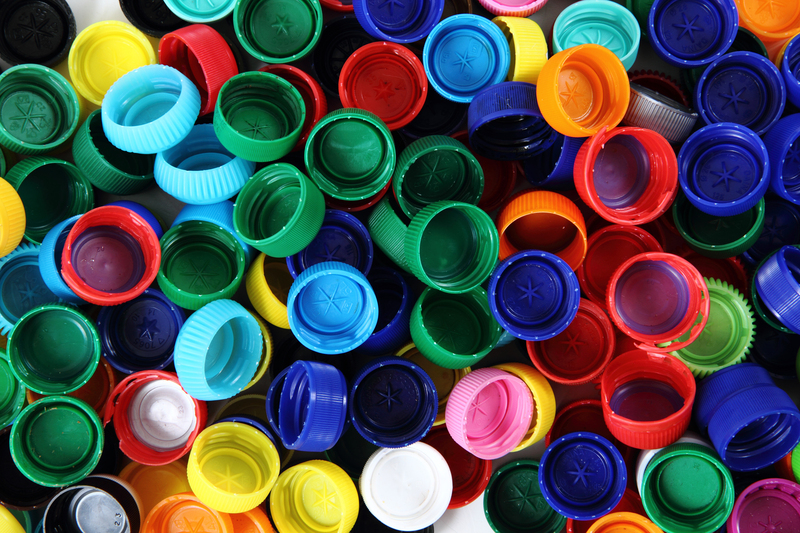What You Need to Know About Recycling Metal Cookware
Recycling is more important than ever as our planet faces increasing resource shortages and environmental challenges. One household item that often gets overlooked in the recycling process is metal cookware. From old pots and pans to baking trays and woks, millions of these items end up in landfills each year. Properly recycling metal cookware not only conserves valuable resources but also reduces environmental pollution. In this comprehensive guide, we'll cover everything you need to know about recycling metal cookware, including where, how, and why you should give your old kitchenware a new life.
Why Recycling Metal Cookware Matters
Understanding the significance of metal cookware recycling is the first step in making informed, eco-friendly decisions. Here's why it's so crucial:
- Resource Conservation: Recycling metals like aluminum and stainless steel reduces the need for extensive mining, conserving natural resources and energy.
- Energy Savings: Producing new metals from reclaimed material uses significantly less energy than creating metals from raw ore. For instance, recycling aluminum saves up to 95% of the energy required to produce it from bauxite ore.
- Waste Reduction: Metal cookware can last decades, but eventually, all cookware reaches the end of its useful life. Recycling keeps these items out of overcrowded landfills.
- Pollution Reduction: Proper metal cookware recycling reduces air and water pollution caused by landfilling and mining operations.

Types of Metal Cookware That Can Be Recycled
Not all cookware is created equal, and different materials require slightly different approaches to recycling. Here are the most common types of recyclable metal cookware:
1. Aluminum Cookware
- Includes pots, pans, baking sheets, and trays.
- Aluminum is one of the most commonly recycled household metals.
2. Stainless Steel Cookware
- Covers pots, pans, mixing bowls, and utensils.
- Highly valued by metal recyclers for its durability and ease of processing.
3. Cast Iron Cookware
- Skillets, Dutch ovens, and griddles fall into this category.
- Very heavy and can be fully recycled if not coated with hazardous materials.
4. Copper Cookware
- Premium, often expensive pots and pans.
- Recyclers typically pay a premium for clean, uncoated copper.
What About Non-Metal Parts and Coatings?
Many modern cooking pans come with nonstick coatings or plastic/rubber handles. These components can complicate the recycling process. Most recycling centers require you to remove as much non-metal or hazardous material as possible before recycling.
- Nonstick Cookware (e.g., Teflon): Many recyclers do not accept nonstick pans with coating intact. Look for programs that accept nonstick cookware, or check if the coating can be sanded off before recycling.
- Plastic or Rubber Handles: Remove these parts to ensure that they don't contaminate the metal recycling stream.
How to Prepare Metal Cookware for Recycling
Proper preparation is essential for effective and efficient recycling of metal pots, pans, and other cookware. Follow these steps for best results:
- Clean Thoroughly: Wash your old cookware to remove all food residue, grease, and dirt. Dirty items may not be accepted.
- Remove Non-Metal Components: Detach plastic handles, glass lids, or rubber grips. These can sometimes be recycled separately, depending on your local facilities.
- Check Coatings: Nonstick, ceramic, or enamel coatings can affect recyclability. Contact your recycling center to find out if these items are accepted.
- Sort by Metal Type: If you have different metals, such as cast iron and aluminum, sort them to help the recycling process run more smoothly.
Where to Recycle Old Metal Cookware
Many local recycling programs do not accept cookware in standard curbside bins. Here are some of the best options for recycling your metal cookware:
- Scrap Metal Dealers: Many private scrap yards and metal recyclers accept all types of metal cookware. You may even earn a small payment, especially for aluminum or copper.
- Special Recycling Events: Local governments and organizations frequently hold community recycling days for hard-to-recycle items like cookware.
- Household Recycling Centers: Dedicated drop-off recycling centers often accept metal pans, even if curbside programs don't.
- Donation Centers: If your cookware still has life left, consider donating to thrift stores, shelters, or schools before recycling.
- Manufacturer Take-Back Programs: Some cookware brands (like Calphalon or TerraCycle) offer recycling or mail-back programs for old pots and pans.
Common Issues and Solutions When Recycling Cookware
Can You Put Old Pots and Pans in the Recycling Bin?
Most municipal curbside recycling programs do not accept old cookware because sorting facilities are not equipped to handle large or oddly shaped metal items. Instead, take cookware to a scrap metal recycling facility or a special collection event. Always check your local guidelines before tossing cookware in the recycling bin.
What About Rusty or Broken Cookware?
Recyclers can generally process rusty or damaged cookware, provided it's clean and free of non-metal parts. Rust and surface damage won't affect the metal's recyclability.
Nonstick and Ceramic Cookware
Nonstick coatings (like Teflon) and ceramic finishes can be problematic. Some recyclers will refuse these items unless the coating is removed. However, a few specialty facilities and manufacturer programs accept nonstick pans, so research locally.
Creative Alternatives: Upcycling Old Metal Cookware
If your old pots and pans are beyond repair but you're not ready to recycle them, consider upcycling. Here are some imaginative ways to repurpose old cookware:
- Turn a leaky saucepan into a flower planter for your garden.
- Transform cast iron pans into rustic wall decor or clocks.
- Use baking sheets as magnetic bulletin boards.
- Repurpose muffin tins as organizers for hardware, jewelry, or craft supplies.
Upcycling not only diverts cookware from landfills but also allows you to add a personalized touch to your home. For inspiration, check out online craft communities or sustainability blogs.
Steps to Take Before Disposing of Old Metal Cookware
Before you send your old pots and pans for recycling, consider these steps:
- Repair: Sometimes handles or knobs can be replaced easily, giving your cookware a new lease on life.
- Donation: If the item is still usable, donate it to local shelters, thrift stores, or charitable organizations.
- Share or Swap: Ask friends or neighbors if they need extra kitchenware.
- Sell: Gently used cookware can often be sold at garage sales or online platforms.
The Recycling Process: What Actually Happens to Recycled Cookware?
Ever wondered what becomes of your recycled cookware? Here's a brief overview:
- Collection and Transportation: Your old cookware is collected or dropped off at a collection point, then transported to a recycling facility.
- Sorting: Items are sorted by metal type--aluminum, steel, or other alloys.
- Shredding and Melting: The sorted metal is shredded into small pieces and melted down in a furnace.
- Purification: Impurities are removed, and the pure molten metal is poured into molds to create new products.
- Manufacturing: The recycled metal is used to create new cookware, automotive parts, cans, and countless other products.
By recycling metal cookware, you become part of a cycle that reduces the environmental impact of new metal manufacturing and keeps usable materials circulating in the economy.
Environmental and Economic Benefits
Recycling your cookware yields significant benefits for both the planet and local economies:
- Lower Greenhouse Gas Emissions: Melting down scrap metal produces much less carbon dioxide compared to smelting new metal.
- Energy Efficiency: Recycled metals maintain their quality and usability, often requiring less processing than virgin materials.
- Job Creation: Metal recycling supports thousands of jobs in collection, processing, and manufacturing sectors.
- Cost Savings: Recycled materials are often cheaper to manufacture, which can lower costs for consumers.

Frequently Asked Questions About Recycling Metal Cookware
How can I tell if my local recycling accepts metal pans?
Always check with your local recycling center or municipality. Most standard curbside programs reject cookware, but household hazardous waste centers or scrap metal facilities usually accept them.
Can cookware with wood or silicone handles be recycled?
Remove any non-metal parts before recycling. Handles made of wood or silicone should be disposed of separately unless you find a program that recycles these materials.
Is there any cookware that can't be recycled?
Glass, ceramic bakeware, and pots with large amounts of non-metallic coatings usually cannot be recycled with standard metal cookware. Always separate non-recyclable parts.
What should I do with cookware that's still in good condition?
Donate, sell, or give away cookware that is still usable before considering recycling. Many people or organizations could benefit from your gently used pots and pans.
Conclusion: Making a Difference With Metal Cookware Recycling
Recycling metal cookware is a simple but powerful way to reduce your environmental impact and support a healthier planet. By understanding your local options, properly preparing your items, and considering upcycling or donation, you can ensure your old pots and pans don't go to waste. Every recycled pan or pot helps conserve precious resources and moves us closer to a sustainable future.
If you're interested in learning more about sustainable living or other recycling tips, check with your local recycling programs, environmental organizations, or visit reputable online sources. Start today, and turn your old kitchen gear into a greener tomorrow!